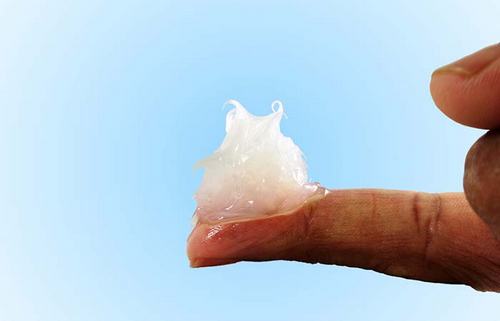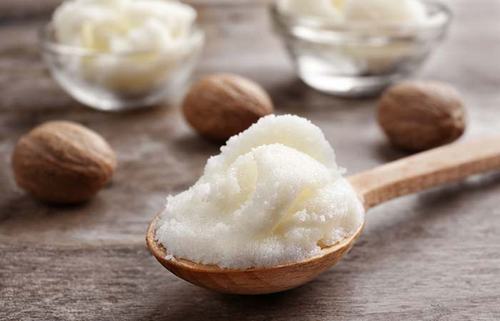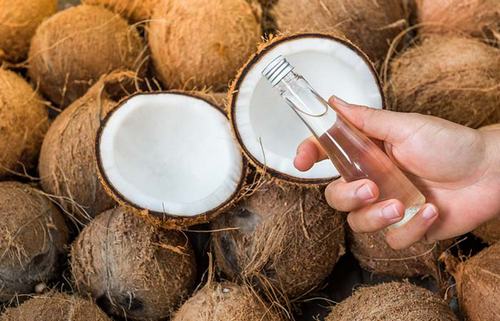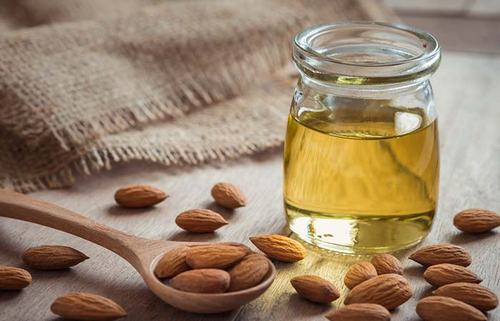When we found out, we were startled too. So we did two things. One was to jot down why Vaseline is bad for our skin; two, we also came up with some alternatives for us to use instead of the petroleum jelly. Read on to know more.
How many of us here consider Vaseline aka petroleum jelly as our everyday elixir for our skin? We use it for almost everything. Right from moisturizing our hands and legs to smoothening chapped lips, petroleum jelly finds a wide range of uses.
We know there are a zillion uses of Vaseline, but there are also some serious red flags that signal us to stop using it on our skin.
What Exactly Is Petroleum Jelly?
It is a by-product obtained in the oil refining process (Yep! You read that right). Therefore, it is neither Eco-friendly nor is it sustainable. The petroleum jelly is generally found in the bottom-most part of an oil rig.

This unscented byproduct is further refined to be used in beauty products like Vaseline. If you take a close look at the ingredients on its packaging, you will see that it does contain harmful components like hydrocarbons.
How Does Petroleum Jelly Work On Our Skin?
It is a quotidian ingredient in almost all beauty products, especially the moisturizers. In the market, it is widely available and people resort to using it as it is the cheapest on the rack out there. It has other names too-petrolatum, mineral oil, paraffin oil or liquid paraffin. People use it because it makes your skin soft, supple and basically holds in the moisture of the skin.

Of course, we need to make sure our skin is moisturized and nourished. But locking the moisture with a product that has petroleum jelly can be a bad thing. Because this ingredient is waterproof and not water soluble. It sure does create a protective layer over your skin, but this only means that it’s preventing your skin from sweating or breathing. (This doesn’t really sound right!) It is like trapping our skin. Furthermore, it could also block our skin’s pores and can lock in dirt or bacteria. And that’s the last thing you ever want for your skin.
It surely does what you expect it to do (moisturizes your skin) but without any health benefits.
Why You Shouldn’t Be Using Petroleum Jelly On Your Skin
- It Contaminates The Body: Our body cannot metabolize petroleum jelly. Especially when we apply petroleum jelly over a wound or a cut on our skin, it can delay the healing process of the wound.
- It Affects The Estrogen Levels: There are substances in petroleum jelly that can cause an increase in the estrogen levels of the body. Studies have shown that there are hydrocarbons that affect the endocrine system, too.
- Causes Yeast Infections: Petroleum jelly seals your skin and blocks moisture, it creates a warm atmosphere perfect enough for the yeast and fungal infection to develop.
- It Has Carcinogenic Substances: These are known to cause cancer. And sadly petroleum-based products might have such substance. Whether Vaseline causes cancer or not is still a hot debate in the works. But, better to be cautious than to be sorry, right?
Some Natural Alternatives To Petroleum Jelly (Vaseline)
- Shea Butter:

This butter is acquired from the Shea tree. It’s rich in vitamin E and A which promote the growth of healthy skin.
- Coconut Oil:

Virgin coconut oil does wonders to dry skin. It moisturizes the skin, improves the collagen and also acts as a moderate analgesic (discomfort reliever).
- Almond Oil:

Rich in vitamin E, this oil is known to heal dry skin and eczema. In fact, it can be used to treat wrinkles around the eyes as well.
- Jojoba Oil:

Two things are great when it comes to using this oil as a moisturizer. It hydrates your skin and it prevents excess accumulation of oil on the skin. Also, its anti-inflammatory properties can fix damaged skin. And it’s hypoallergenic (suitable for all skin types).
- Avocado Oil:

The high levels of oleic acid in avocados boast of a variety of skin benefits. Apart from just moisturizing the skin, it can also be used to treat chronic skin conditions.
Petroleum Jelly: Yay Or Nay?
While quite a number of dermatologists advise Vaseline or any other petroleum jelly based products, there is an even greater number of researches and studies that advise other alternatives for the skin. And, when a significant number of doubts have been raised with respect to petroleum jelly’s adverse effects on our skin, why take a plunge in the Dead Sea in search of the pearls, right? When we have natural alternatives, let’s resort to them instead.
Have you ever faced any issues with petroleum jelly based products? Do let us know in the comments below.



